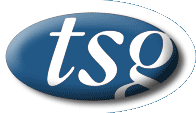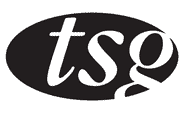|
Service Areas
|
Tax Tips
The tax treatment of bursaries and scholarships (“bursaries”) is surprisingly complex because it is quite fact specific. In Interpretation Bulletin 75R4 (IT-75R4 the Canada Revenue Agency (the CRA) states that “Scholarships and bursaries are amounts paid or benefits given to students to enable them to pursue their education”. Not all bursaries are provided at the post-elementary school level. There are circumstances where scholarships or bursaries are awarded for education below the post-secondary school level. Some employers provide bursaries to their employees. The various facts of the situation determine the income tax treatment. In this tax tip we will attempt to provide a basic overview of how bursaries received in different situations are taxed. Generally, bursaries are included in income and a deduction for the same amount is allowed. As in any tax matter there can be exceptions. Here is a basic summary of the tax treatment of the more common bursaries: If a bursary is obtained while the taxpayer is pursuing full time education at a qualifying educational institution or attending elementary or high school then it is fully exempt from taxation. If a bursary is obtained while the taxpayer is pursuing part time education at a qualifying educational institution then it is exempt to the extent of the sum of cost of the program and materials plus $500. Elementary and high school does not fit into this category. The exemption is limited to $500 if the taxpayer is neither pursuing full time education at a qualifying educational institution nor is attending elementary or high school. The determination of whether a student is pursuing post secondary education full time or part time is determined whether he qualifies for the full time or part time education amounts, respectively. The full time or part time education amounts are reported on the T2202A slip issued by a qualifying post secondary educational institution. If the bursary is obtained while pursuing post-doctoral studies then it is, usually fully taxable because it does not lead to a degree. If the bursary is obtained as part of the taxpayer’s employment or future employment then it is likely taxable as employment income. In some employment cases, bursaries are awarded to employees’ children based on merit. In these cases, the bursary will likely be taxable to the child and eligible for deduction based on the rules noted above. There are no withholding requirements for bursaries, unless they represent employment income, but a T4A must be issued.. If the bursary is employment income then a T4 including the bursary and reflecting the source deductions should be issued by the employer. Please contact your TSG representative for more guidance on these complicated rules. TAX TIP OF THE WEEK is provided as a free service to clients and friends of the Tax Specialist Group member firms. The Tax Specialist Group is a national affiliation of firms who specialize in providing tax consulting services to other professionals, businesses and high net worth individuals on Canadian and international tax matters and tax disputes. |


